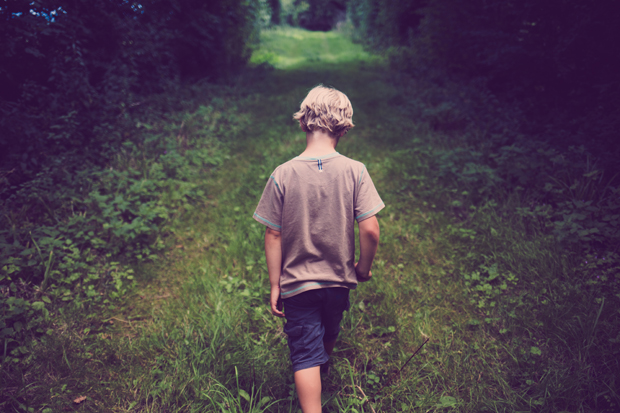We learn from a new report that children in England are among the unhappiest in the world — more unhappy, even, than the children of Ethiopia, Algeria or Israel. Why should this be so? Life is still quite good in England. It is generally peaceful and prosperous. Yet, in the admittedly rather haphazard list of countries surveyed by the Children’s Society and the University of York, the only one in which children were found to be more miserable than here was South Korea. The children of Romania and Colombia were all far happier.
The two main reasons offered for this despondency among English children were bullying in schools and worries, particularly among girls, about their appearance. The researchers found that more than a third of English schoolchildren between the ages of ten and 12 claimed to have been physically bullied during the previous month. More than half said that they had been cold-shouldered, taunted or belittled. The figures suggest that there are an awful lot of bullies around, but perhaps bullying doesn’t make you happy either.
The gloom among English children about what they look like — Colombian girls are apparently delighted with their looks — is partly attributed by the report to the popularity of social media in Britain. Children are said to compare themselves with the ‘perfect’ bodies they see online and feel inadequate by comparison. Here, I feel, the researchers are on to something, but are failing to grasp the full measure of it.
As I was writing here a month ago, excessive dependence on smartphones and other electronic devices has been established by hordes of researchers as a major cause of depression. And it is rare to find any English child of ten to 12 who isn’t glued to some device: texting, listening, watching or whatever — silent, unresponsive, and totally uninterested in whatever may be going on in the real world. Maybe there are fewer bullies among Romanian or Colombian children, but I suspect that the main reason for their greater cheerfulness is that most of them can’t afford smartphones.
We of a certain age — oldies, in a word — were spared these numbing devices when we were young, which may well be why there are still many of us who look back on our childhoods as the happiest days of our lives. I am not one of them, but I still don’t think I was generally miserable in my youth. I may, however, be happier now, for one survey after another tells me that I ought to be. For all their potential decrepitude and senility, oldies are now regularly described as being unexpectedly full of fun and gaiety.
We, though, the oldies — not perhaps the elderly. In a survey published 13 years ago, Boots the Chemist found that most people enjoyed their happiest times between the ages of 65 and 74. I am 75, so for me it’s downhill from now on. Nevertheless, you might expect that even people of 74 might start to be feeling a little depressed. They are weaker and slower-witted than they were, they are too old to realise most of their dreams, and the grim prospect of death is hoving into view.
Yet the Boots survey found that they were on the whole very cheerful. This wasn’t so much because they had pensions and bus passes and plenty of time to do whatever they wanted, but because they said they felt a greater sense of control over their lives. Strangely, they claimed to be more optimistic than before; and still more strangely, they were more content with their appearance. With less to look forward to, they felt greater optimism? With physical deterioration, they preferred what they looked like? It seemed to make no sense.
But maybe it’s just because old people simply don’t worry any more. Provided that they are still in good health, and many of them are, and that they have enough money put away, they tend to be footloose and fancy-free. That is why, according to Barclays Bank, the over-65s spend more on having fun — on holidays, entertainment, gambling and golf — than any other age group. That is also perhaps why middle-class pensioners are found in yet another survey to be the heaviest drinkers in the land, while the young are becoming increasingly teetotal. The young are terribly anxious; the old just don’t care any more.
Got something to add? Join the discussion and comment below.
Get 10 issues for just $10
Subscribe to The Spectator Australia today for the next 10 magazine issues, plus full online access, for just $10.
You might disagree with half of it, but you’ll enjoy reading all of it. Try your first month for free, then just $2 a week for the remainder of your first year.













Comments
Don't miss out
Join the conversation with other Spectator Australia readers. Subscribe to leave a comment.
SUBSCRIBEAlready a subscriber? Log in